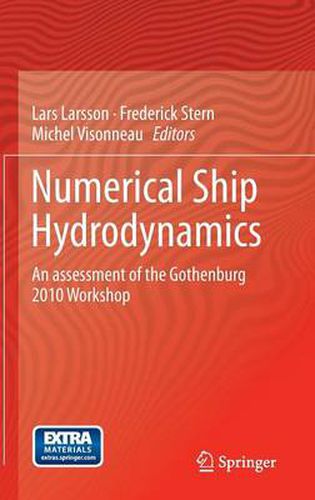Readings Newsletter
Become a Readings Member to make your shopping experience even easier.
Sign in or sign up for free!
You’re not far away from qualifying for FREE standard shipping within Australia
You’ve qualified for FREE standard shipping within Australia
The cart is loading…






This title is printed to order. This book may have been self-published. If so, we cannot guarantee the quality of the content. In the main most books will have gone through the editing process however some may not. We therefore suggest that you be aware of this before ordering this book. If in doubt check either the author or publisher’s details as we are unable to accept any returns unless they are faulty. Please contact us if you have any questions.
This book assesses the state-of-the-art in computational fluid dynamics (CFD) applied to ship hydrodynamics and provides guidelines for the future developments in the field based on the Gothenburg 2010 Workshop. It presents ship hull test cases, experimental data and submitted computational methods, conditions, grids and results. Analysis is made of errors for global (resistance, sinkage and trim and self-propulsion) and local flow (wave elevations and mean velocities and turbulence) variables, including standard deviations for global variables and propeller modeling for self-propulsion. The effects of grid size and turbulence models are evaluated for both global and local flow variables. Detailed analysis is made of turbulence modeling capabilities for capturing local flow physics. Errors are also analyzed for head-wave seakeeping and forward speed diffraction, and calm-water forward speed-roll decay. Resistance submissions are used to evaluate the error and uncertainty by means of a systematic verification and validation (V&V) study along with statistical investigations. Post-workshop experimental and computational studies are conducted and analyzed for evaluation of facility biases and to draw more concrete conclusions regarding the most reliable turbulence model, appropriate numerical methods and grid resolution requirements, respectively.
$9.00 standard shipping within Australia
FREE standard shipping within Australia for orders over $100.00
Express & International shipping calculated at checkout
This title is printed to order. This book may have been self-published. If so, we cannot guarantee the quality of the content. In the main most books will have gone through the editing process however some may not. We therefore suggest that you be aware of this before ordering this book. If in doubt check either the author or publisher’s details as we are unable to accept any returns unless they are faulty. Please contact us if you have any questions.
This book assesses the state-of-the-art in computational fluid dynamics (CFD) applied to ship hydrodynamics and provides guidelines for the future developments in the field based on the Gothenburg 2010 Workshop. It presents ship hull test cases, experimental data and submitted computational methods, conditions, grids and results. Analysis is made of errors for global (resistance, sinkage and trim and self-propulsion) and local flow (wave elevations and mean velocities and turbulence) variables, including standard deviations for global variables and propeller modeling for self-propulsion. The effects of grid size and turbulence models are evaluated for both global and local flow variables. Detailed analysis is made of turbulence modeling capabilities for capturing local flow physics. Errors are also analyzed for head-wave seakeeping and forward speed diffraction, and calm-water forward speed-roll decay. Resistance submissions are used to evaluate the error and uncertainty by means of a systematic verification and validation (V&V) study along with statistical investigations. Post-workshop experimental and computational studies are conducted and analyzed for evaluation of facility biases and to draw more concrete conclusions regarding the most reliable turbulence model, appropriate numerical methods and grid resolution requirements, respectively.